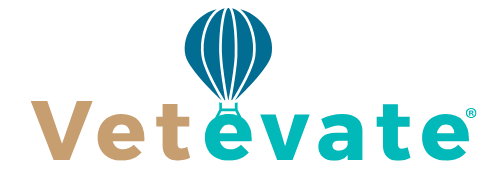Veterinary job boards and veterinarian job boards are designed to connect employers in the animal healthcare industry with qualified job seekers. These digital platforms serve as a central location where veterinary professionals can search for job opportunities, and employers can advertise open positions. Although the terms are often used interchangeably, “veterinary job boards” may refer to platforms that list jobs for a wide range of roles in the field—including veterinary technicians, assistants, practice managers, and support staff—while “veterinarian job boards” typically focus more specifically on positions for licensed veterinarians. Regardless of the scope, the goal is the same: to facilitate efficient and relevant hiring within the veterinary profession.
At a basic level, veterinary job boards function similarly to general job posting websites. Employers create listings that include job titles, descriptions, qualifications, location, compensation, and application instructions. These listings are then published to the board’s database, where they are visible to users searching for work. Job seekers can filter and browse through these listings, often creating accounts that allow them to apply directly through the platform. What distinguishes veterinary job boards from more general platforms is their dedicated focus. Every feature, filter, and search tool is tailored specifically to the structure of veterinary careers, making the experience far more efficient and meaningful for users.
Most boards are organized around key categories that reflect the nature of veterinary practice. These include practice type (such as small animal, equine, mixed, or exotic), employment type (full-time, part-time, relief, or internship), and role (veterinarian, technician, assistant, etc.). Users can search geographically by city, state, or zip code, and some boards offer map-based browsing or even location radius filters. This tailored setup makes the platforms highly functional and attractive to professionals seeking opportunities that align closely with their specific skills and goals.
How Job Seekers Use the Platform
For job seekers, veterinary job boards provide a streamlined and focused way to navigate career options in the animal health field. The process typically begins with creating an account on the job board, which gives the user access to more advanced features. From there, the job seeker can build a professional profile, upload a resume or curriculum vitae, and input preferences regarding location, type of practice, desired compensation, or other criteria. This profile acts as a central hub for their job search activities and can often be updated or customized as needed.
Once the profile is created, job seekers use search tools to explore available listings. Advanced search functionality is one of the key strengths of high-quality veterinary job boards. These tools allow candidates to zero in on the exact kinds of roles they’re seeking, rather than sifting through hundreds of listings on a general site. The ability to filter by species focus, position level, or employer type gives job seekers a significant advantage in finding roles that are both desirable and practical.
After identifying suitable opportunities, the application process is often simplified. Many boards allow one-click applications or the ability to send resumes and cover letters directly through the platform. Others enable direct messaging between candidates and employers, which facilitates more personalized communication. In some cases, candidates can also track the status of their applications through the platform, giving them a clearer picture of where they stand. This transparency reduces anxiety and keeps the job search organized.
Veterinary job boards also frequently offer job alerts and notifications. By setting specific search preferences, users can receive emails or app notifications when new roles are posted that match their interests. This feature allows job seekers to stay ahead of the curve and apply to positions early in the posting window, increasing their chances of success. Because the veterinary job market can be competitive in certain regions or specialties, having access to real-time updates is a valuable service for active candidates.
How Employers Engage With the Platform
On the employer side, veterinary job boards provide a direct channel to a specialized pool of applicants. Employers—such as animal hospitals, clinics, research organizations, shelters, or educational institutions—create accounts that allow them to post job openings and manage their recruitment process. Creating a job listing involves filling out key information, including the role’s responsibilities, required qualifications, working conditions, benefits, and contact information. Depending on the platform, employers may also be encouraged to include information about their practice philosophy, staff culture, or community involvement to make their listing more attractive.
The listings are then made public on the site, where they appear in relevant searches conducted by job seekers. High-quality boards offer employers access to analytics and performance data. This means hiring managers can see how many people have viewed a listing, how many have applied, and even how applicants have found the post—whether through organic search, direct link, or email notification. These insights help employers refine their messaging and determine if they need to adjust the role description or highlight different aspects of the job to attract better candidates.
Many job boards also offer premium listing options for employers. These can include featured job slots that keep a post at the top of search results, highlighted formatting to increase visibility, or access to resume databases where employers can actively search for and contact candidates. For urgent hires or highly specialized positions, these additional services can make a significant difference in reaching the right audience quickly. In some cases, veterinary job boards also partner with recruiting professionals or agencies to assist employers in sourcing and screening candidates.
A key part of how job boards support employers is by promoting their listings to targeted audiences. Through newsletters, social media promotion, and email alerts, boards ensure that a listing gets seen by relevant job seekers. This is particularly important in rural or underserved areas, where attracting applicants can be more challenging. The board’s ability to market jobs effectively within the veterinary community is a core reason employers continue to use these platforms.
Community Engagement and Long-Term Career Support
Beyond the immediate function of posting and finding jobs, veterinary job boards also serve as ongoing resources for professional development and community engagement. Many platforms provide educational articles, blog posts, or newsletters that share information about salary trends, licensing updates, workplace wellness, and career growth strategies. These resources are tailored specifically to veterinary professionals, helping users make informed career decisions and navigate the complexities of the job market.
Some boards host virtual career fairs, networking events, or mentorship programs. These events allow job seekers and employers to connect in real-time, discuss opportunities, and ask questions. Participation in these events can be especially useful for students or early-career professionals who are just beginning to explore their options. For employers, these events provide a chance to present their clinic or organization in a more personal and interactive way, building interest among potential candidates.
Veterinary job boards may also include forums or community discussion sections where professionals can ask questions, seek advice, or share experiences. These forums help create a sense of belonging and support in a profession that can be emotionally and mentally demanding. By fostering this sense of community, job boards become more than just job search tools—they become trusted spaces for collaboration and growth.
In addition to professional development, some platforms focus on diversity, equity, and inclusion by promoting job listings from employers who value inclusive hiring practices. They may also spotlight employers who support mental health, mentorship, and continuing education, encouraging job seekers to prioritize workplaces that offer long-term support and sustainability.
The Value of Veterinary Job Boards
Veterinary job boards and veterinarian job boards are powerful tools that streamline the hiring process for both employers and job seekers in the animal healthcare field. These platforms offer targeted job listings, advanced search tools, and user-friendly application systems tailored to the specific needs of veterinary professionals. For employers, they provide access to a highly specialized candidate pool and valuable tools for recruitment. For job seekers, they offer an efficient, organized, and informed way to find meaningful employment opportunities. Through added services such as career resources, event hosting, and community engagement, these boards go beyond simple job matching—they support the veterinary profession in building sustainable, fulfilling careers.




